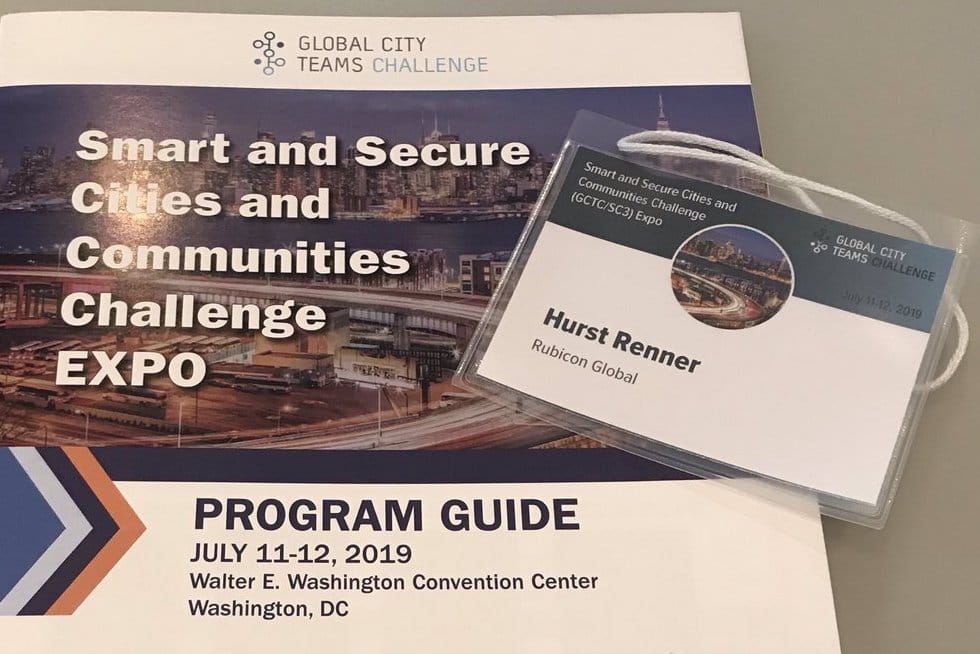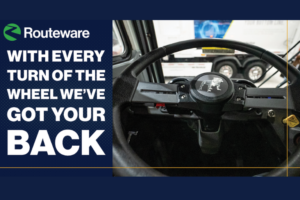NOTE: At the time this article was originally published, RUBICONSmartCity was not part of Routeware’s suite of technology solutions. RUBICONSmartCity was acquired by Routeware in August 2024 and has since been fully integrated into the company’s offering.
I recently spoke at the Global City Teams Challenge (GCTC) Smart and Secure Cities and Communities Challenge (SC3) Expo in Washington, D.C. about how public-private partnerships can support a city’s transportation infrastructure—and how RUBICONSmartCity™ is leading the way in making this happen.
The conference, which took place at the Walter E. Washington Convention Center, consisted of a mix of representatives—including numerous members of Congress and regional and international city mayors, as well as private businesses, including Rubicon. The attendees were excited to learn more about how innovative technology-based solutions can find operational efficiencies, cut costs, and ultimately improve the quality of life for their citizens—on which I presented during a “Supercluster” breakout session.
The Environmental and Economic Costs of Waste
The environmental and economic costs of waste are massive.
In recent years, the Environmental Protection Agency (EPA) noted that 20 percent of the total U.S. methane emissions originate in landfills, with Forbes reporting that 12 billion metric tons of waste are expected to find their way to landfills (or the environment as a whole) by 2050 if the current production and waste management trends are allowed to continue.
Here at Rubicon, this is something that we have been raising the alarm about for some time; both through our solutions to these problems, including our smart city offering, as well as our commentary on these very topics.
It is estimated that anywhere from 30-40 percent of all food produced in the United States is going uneaten annually, with this food often ending up in landfills. My colleague Ryan Cooper, a Waste Diversion Manager and the Organics Recycling Lead here at Rubicon, has written extensively about how we can curb this problem, focusing on everything from how cities and businesses can work together to improve their food waste recycling efforts, to current trends in the anaerobic digestion of food waste.
Rubicon’s Smart City Solution
This brings me to RUBICONSmartCity. During my SC3 presentation I spoke of the successes coming out of our current pilots in cities as varied as Fort Collins, CO; Irving, TX; and our most recently announced city, Norfolk, VA, while also speaking of the value drivers of our smart city technology as a whole.
Speaking to an engaged audience made up of both public and private sector stakeholders, I spoke about how RUBICONSmartCity is driving return on investment, maximizing safety, and speeding up the government procurement timeline for the cities we partner with, specifically when it comes to transportation and government fleets. This is on top of our landfill diversion (reducing the number of recyclable materials being dumped into landfills) capabilities, helping city governments to hit their sustainability goals.
I had a great time presenting and meeting with government leaders at the GCTC/SC3 this year. If you have any questions for me or the rest of the Smart City team here at Rubicon, or you would like to explore the possibility of deploying RUBICONSmartCity in your city, Get Started today with your initial quick and free consultation.





